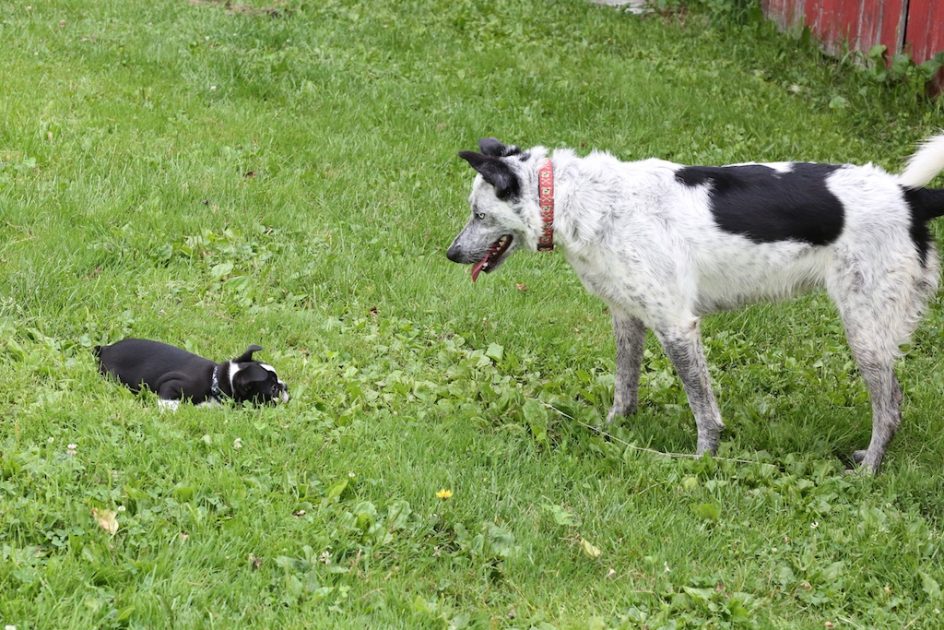
I was really anxious to see Isle Of Dogs, the new Wes Anderson movie (The Grand Budapest Hotel) released a couple of weeks ago. I’m curious about Wes Anderson, and I’m interested in dogs.
I haven’t seen all of Anderson’s movies, but it was hard to resist the premise of this genre-busting animal film about a brave and loyal boy’s great adventure in search of his lost dog.
This is a strange, gorgeous, detailed movie, unlike any I have seen. You don’t need to love dogs to enjoy this meticulously conceived, and at times quite beautiful and strikingly imaginative film. The details in the film are hypnotic.
If you don’t care about dogs and love films, it’s still very much worth seeing.
The premise of the movie is that dogs have been rounded up by an evil and corrupt mayor in Japan who accuses them of being diseased and dangerous to the community.
The mayor sends his adopted son Atari’s dog out to live on Trash Island, one of the first to go.
The scientists who want to save them are murdered, and the dogs are all rounded up and sent off to a giant canine concentration camp called Trash Island out in the ocean where they are left to starve, become sick, and sometimes even commit suicide, their lives are so wretched.
They miss their humans, and they eating real food rather than rotting garbage with worms.
The island is dispiriting and scrungy – the could have called the island Scrungeville – , and dog rescuers will drool at the sight of these many thousands of abandoned dogs. These dogs really are abused. This is a dog rescue movie on a whole new magically rendered level.
It also considers the degree to which humans and dogs are bound to one another, and what they owe each other.
Atari escapes the city to fly in a stolen plane to Trash Island, where he sets out – aided by loyal and compassionate and long-suffering dogs – to find Spot, his dog and bodyguard. Atari is determined to risk everything to find his dog. The other dogs understand.
I loved how the movie explored some dog and people ethics, and Craven really went wild with the stop animation, which gave the movie an alternately gorgeous, creepy and troubling feel. It’s a beautiful move in a different way than I am used to, and Craven’s dogs are moral ethicists, survivors, kind spirits and philosophers.
They are vastly more intelligent, empathetic and ethical than their human masters, most of whom are happy to be lied to and coerced into abandoning their dogs to an awful and lonely fate.
I had the feeling Anderson was making a timely political movie in some way, because the Japanese city is run by lying, crooked and arrogant leaders without empathy or compassion, even for dogs, who every politician loves.
There is a dark but never frightening crookedness to the movie. And an uprising meant to unseat the mayor. There are creative chases and confrontations but this movie is meant to dazzle, not to touch the soul.
I enjoyed and highly recommend but it was also so detailed and crafted a film that I felt detached from the characters, none of whom really got through to me on any emotional level. You won’t cry during this movie or tear up, although the plight of the abandoned dogs was wrenching at times.
The dogs are attractive and admirable, but the movie lacks the emotional punch the mostly sappy dog movies evoke.
The movie entertained me but never really got under my skin, or touched as deeply as the heart.
An hour later, I wasn’t feeling it or thinking about it. I’d recommend the movie most highly to film buffs interested in genres like stop animation, design and radical vision.
As a dog lover, I enjoyed it for that also, but It’s not really a dog movie to me, but something more, a story and movie beyond that, a show case for new forms of cinema.
I’m glad I went, it is an intensely interesting movie.
I won’t give the plot away other than to say that people who can’t bear seeing dogs die or be treated cruelly – I can testify that there are many – should feel safe going to see this movie. It is not a horror movie in any way.
From the reviews I read, this is Anderson’s weirdest film ever, almost entirely in good ways.
